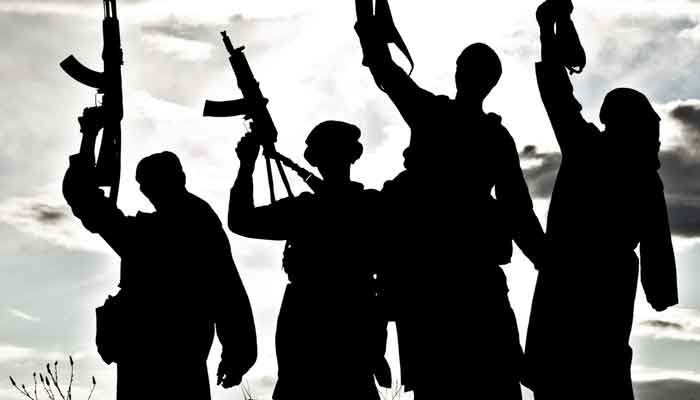India faces Daesh threat
During the last few months, India has quietly arrested a number of Daesh (IS) members from states in south India. This is the region the Sri Lankan Easter bombers visited frequently. The arrested IS militants in India provided information to Indian authorities regarding the impending attacks in Sri Lanka, thereby, showing the presence of the group in the country. Unfortunately, the Sri Lankan authorities could not stop the attacks that left more than 250 dead and several hundred injured. There has been lot of meddling by India in Sri Lankan affairs and efforts to dictate policies over the decades. Therefore, it seems the Sri Lankans do not trust the Indian security and intelligence agencies any longer.
According to prominent Indian publications, Mohammad Zahran Hashim, the mastermind of the Sri Lankan Easter bombings, spent a "substantial amount of time in south India". A top source within the Sri Lankan military told the Indian media that “We are looking into the IS angle. We also suspect that some of those radical youth (suspected bombers) were indoctrinated and trained in India, possibly Tamil Nadu.” Indian officials are tight-lipped on the reports that Hashim had traveled to India but admit that he had maintained virtual links with youth believed to be of Indian origin.
Hilmy Ahamed, vice-president of the Muslim Council of Sri Lanka, confirmed Hashim's ties with south India. He told international wire agencies that Hashim had shifted base to southern India. “All his videos have been uploaded from India. He uses boats of smugglers to travel back and forth from southern India," he was quoted as saying.
According to The Hindu newspaper, the notion that Hashim made use of "doctrinal videos" in order to likely radicalise youth, first emerged when Indian authorities questioned seven individuals of a group whose leader was found to be a follower of Hashim. "The men were IS sympathisers and arrested in September 2018 in Coimbatore, on suspicion that they were plotting the assassination of certain political and religious leaders in India," The Hindu said, quoting the official.
Meanwhile, the Sri Lankan Army chief recently said that some terrorists had traveled to India to make connections. They had gone to Bengaluru, Kochi, and parts of (held) Kashmir. He said they could tell their exact locations and people they met after the investigations. It was reported that business tycoon Yusuf Ibrahim's sons traveled under the garb of business to India.
The probability that the IS in India may be in contact with other militant groups, especially the Naxalites, cannot be ignored. The Indian blame-game involving Pakistan is very much alive; Pulwama, Uri, Gurdaspur being three examples of stage-managed activities. Therefore, if Daesh or some other militant group carries out an attack in India, what can stop New Delhi from pointing fingers at Pakistan, a country that has been a victim of Daesh attacks itself? The fact is Daesh’s expansion is troubling for the whole region. India is quietly but urgently tracking down Daesh cells and members in the country that highlights the urgency of action and shows parts of India may have become a fertile ground for Daesh indoctrination. Meanwhile, the grievances of Muslims in India, like other minorities including Sikhs, continue to grow as the divider-in-chief takes aim at the second term.
-
 Jay-Z Shares Bold Advice With Bad Bunny For NFL Super Bowl Halftime Show Appearance
Jay-Z Shares Bold Advice With Bad Bunny For NFL Super Bowl Halftime Show Appearance -
 Epstein Probe: Bill, Hillary Clinton Call For Public Testimony Hearing
Epstein Probe: Bill, Hillary Clinton Call For Public Testimony Hearing -
 Brooklyn Beckham Considers Adoption As Nicola Peltz Can't Carry A Baby
Brooklyn Beckham Considers Adoption As Nicola Peltz Can't Carry A Baby -
 Expert Discusses 'complications' Of Measles Outbreak
Expert Discusses 'complications' Of Measles Outbreak -
 Kaley Cuoco Recalls Her Divorce With Karl Cook: 'I Was Gonna Die'
Kaley Cuoco Recalls Her Divorce With Karl Cook: 'I Was Gonna Die' -
 Celine Dion Reveals Music She's Listening To Lately
Celine Dion Reveals Music She's Listening To Lately -
 HR Exec Kristin Cabot To Speak At Crisis PR Conference After Coldplay Incident
HR Exec Kristin Cabot To Speak At Crisis PR Conference After Coldplay Incident -
 Why Travis Kelce Says Taylor Swift Has Made Him 'so Much Better'?
Why Travis Kelce Says Taylor Swift Has Made Him 'so Much Better'? -
 Halle Berry Credits This Hairstyle With Launching Her Acting Career
Halle Berry Credits This Hairstyle With Launching Her Acting Career -
 Hailee Steinfeld Spills Her 'no-phone' Rule With Husband Josh Allen
Hailee Steinfeld Spills Her 'no-phone' Rule With Husband Josh Allen -
 Bowen Yang Gets Honest About Post SNL Life: 'It’s An Adjustment'
Bowen Yang Gets Honest About Post SNL Life: 'It’s An Adjustment' -
 Charlize Theron Delivers Strong Message At 2026 Winter Olympics Opening Ceremony
Charlize Theron Delivers Strong Message At 2026 Winter Olympics Opening Ceremony -
 Lil Jon Reacts To Son Nathan Smith's Death: 'Devastated'
Lil Jon Reacts To Son Nathan Smith's Death: 'Devastated' -
 Bianca Censori Reveals Where She And Kanye West Stand On Having Children Together
Bianca Censori Reveals Where She And Kanye West Stand On Having Children Together -
 Taylor Swift Hypes Olympic Athletes In Surprise Video Message
Taylor Swift Hypes Olympic Athletes In Surprise Video Message -
 Timothy Busfield Charged With Four Counts Of Child Sexual Abuse
Timothy Busfield Charged With Four Counts Of Child Sexual Abuse




